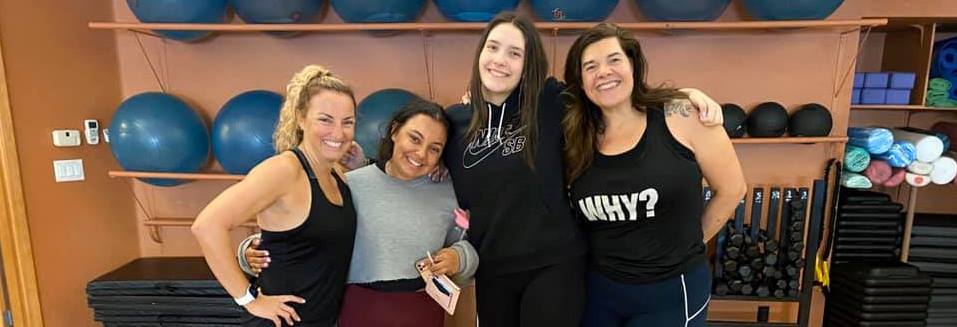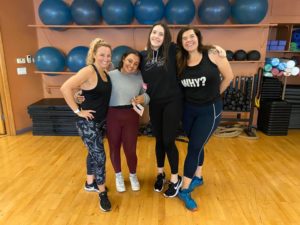Measuring Results – Should You Weigh Yourself?

Imagine this scenario. Your doc tells you that you need to focus on your health and lose some weight. You start exercising and eating healthy every day for an entire week. You step onto the scale excited to see your progress, and your weight has not changed or has actually increased! This can be extremely demoralizing and demotivating.
If you are going to measure your success once you have adopted healthy initiatives, you need appropriate and correct indicators of progress.
 Unfortunately, most people make their biggest mistake in this area. They measure their fat loss success by jumping on the scale. They think that if they have lost weight, they have succeeded; if not, they have failed. But it is not that simple. If you use the scale as your only indicator of success you are setting yourself up for failure! The scale tells you only one thing…your total body weight in pounds or kilograms. It does not tell you anything about how much of that weight is comprised of muscle, bone, fat, or water.
Unfortunately, most people make their biggest mistake in this area. They measure their fat loss success by jumping on the scale. They think that if they have lost weight, they have succeeded; if not, they have failed. But it is not that simple. If you use the scale as your only indicator of success you are setting yourself up for failure! The scale tells you only one thing…your total body weight in pounds or kilograms. It does not tell you anything about how much of that weight is comprised of muscle, bone, fat, or water.
Have you heard that muscle weighs more than fat? Wrong. One pound of muscle weighs the same as one pound of fat – one pound. But, a pound of muscle is more dense than a pound of fat, so it takes up a lot less space. A 140-pound woman who carries a lot of muscle will look very different from a 140-pound woman who carries very little muscle. She will appear smaller and leaner than her less-muscled counterpart, even though they weigh exactly the same.
Relying on the scale presents other problems:
Body weight can fluctuate by several pounds throughout the course of a day.
You could be retaining water and misinterpret the weight gain as body fat gain
Women experience large weight fluctuations due to hormonal changes during their menstrual cycles.
After you eat, your weight increases.
If you have not had a daily morning bowel movement, your weight could be a couple pounds higher than usual.
With that said, using a scale is a quick and easy approach to monitoring your weight and reigning things in if your weight starts to creep up. In addition, research does indicate those who weigh themselves regularly maintain an ideal, healthier body weight that those who don’t.
Should you use the scale to monitor results?
This is a personal decision and should depend on how emotional your response is based on the reading on the scale.
If you find that a weight increase can cause you to become discouraged, depressed, demotivated and negatively affect your day, then you should consider using another approach to monitoring results.
If a weight gain on the scale causes you to throw in the towel or negatively affects your behaviors, even though you’re doing all the right things, the scale may not be the best choice for you to use to monitor progress.
If you are going to use the scale as one of your indicators of success, it is important that you measure yourself on the same scale each time and ideally in the morning before you eat and after you have a bowel movement.
Some people respond well to weighing themselves daily while others experience better success by measuring themselves only once per week to avoid the daily emotional roller coaster.
If you use a scale to provide accountability, look for trends and not get upset about daily fluctuations, then regular weight monitoring might work well for you.
Bottom line – the number on the scale is just a number. It doesn’t indicate what kind of person you are and shouldn’t affect the quality of your life or your daily mood.
Other methods to measure weight loss success without or in addition to using a scale:
Girth Measurements
Have a trainer, friend or family member take measurements around your thighs, hips, waist, chest, and arms and monitor the change.
Body Fat Percentage
There are many techniques available to measure body fat including skinfold calipers, bioelectrical impedance, underwater weighing, and DEXA, being the gold standard. The thought is that it’s important to understand body composition and not just body weight.
Photos
Another helpful tool in monitoring fat loss success is a picture, which provides a visual assessment that is more difficult to misinterpret. When using a photo to monitor progress, it’s important to wear minimal clothing to assess any significant changes. The person taking the photo should stand at the same spot away from you in each retest. You should also wear the same clothing to assure perception is not affected by color or cut of the material. Take three photos: one from the front, the side, and the back.
Clothes
Some people prefer to monitor progress by how their clothes fit or which notch they use on their belt buckle. Be cautious of using this technique if you typically only wear loose clothing. The pandemic caused many to gain pounds without noticing because many were working from home. Wearing yoga pants and lounge wear won’t provide any valuable information to help avoid creeping weight gain.
Health Variables
Some people respond well to focusing on health stats such as blood pressure, cholesterol level, and resting heart rate versus weight.
Performance Variables
Some people are very motivated by focusing on performance metrics such as their walking or running speed, how many pushups they can do or how much weight they can lift. Some have been successful at throwing away the scale and never looking back.
Some of us will respond well to weighing ourselves daily, others should weigh less frequently, while others perhaps shouldn’t use the scale at all. It’s important to recognize that we are all individuals and what motivates or demotivates us will be different. We need to figure out what works to keep us on track towards our personal best and stick with that.
If you would like some assistance with sticking to your weight loss goals, join us for our Spring Makeover Challenge.
Yours in health & fitness,
Sherri McMillan
